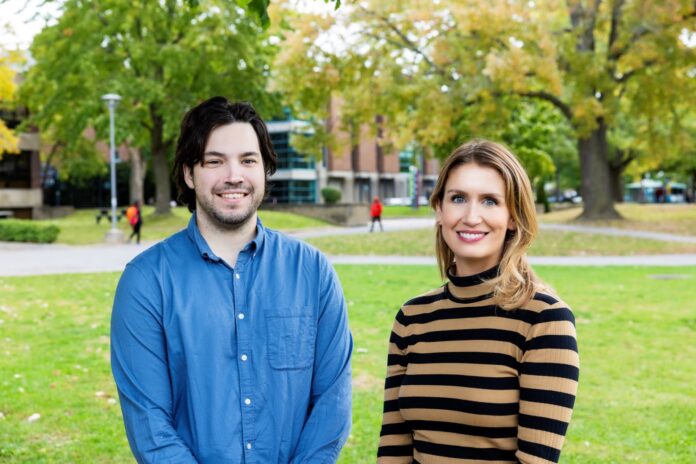
Symptoms of anxiety and depression associated with a fear of cancer recurrence can cause real distress in an understudied population
A new study by Concordia researchers suggests that one-third of adult survivors of childhood cancer experience a fear of cancer recurrence so severe that it can seriously impact their daily lives.
The cross-sectional investigation of 229 survivors of childhood cancer, published in JAMA Network Open Oncology, found that 16.6 per cent of long-term survivors reported clinically significant fear of cancer recurrence (FCR) and an additional 15.7 per cent reported high FCR.
While the numbers are believed to be similar to those seen in survivors of adult-onset cancer, this study highlights the general lack of scientific literature on adult survivors of childhood cancer, says lead author Alex Pizzo, a Clinical Psychology PhD student at the Behavioural Health Innovations Lab at Concordia.
“We have not seen the use of strong measures of FCR that have been validated or are reliable when it comes to studies with childhood cancer survivors, so it has been difficult to pin down prevalence estimates,” he says.
“Of course, some level of fear or anxiety around FCR is entirely normal and justifiable,” adds Nicole Alberts, an associate professor in the Department of Psychology and the paper’s corresponding author.
“But we did not have much evidence about it reaching a level where it really starts to cause survivors distress or impact their school, work or relationships with people.”
Fears linger even decades after treatment
The researchers performed a detailed analysis of data from participants recruited from the Childhood Cancer Survivor Study, a retrospective cohort of survivors treated between 1970 and 1999 across North America. Most were decades past their last cancer treatment.
The respondents’ fear levels were assessed following a series of questionnaires they completed via a study app that asked them to rate their symptoms of FCR, anxiety and depressive symptoms, self-perceived health, chronic pain and other measures. The total scores indicated whether they experienced minimal, high or clinically significant levels of FCR.
For demographic variables, survivors who were unemployed or had some college or an undergraduate degree were most likely to experience the highest levels of FCR. Additionally, survivors with a neurological condition, who underwent pelvic radiation treatment, limb amputation or limb-sparing surgery were most likely to experience FCR.
Those with elevated levels of depression, anxiety or both, and who rated their health as poor or fair were also more likely to experience clinically significant FCR.
Alberts, the Tier 2 Canada Research Chair in Behavioural Health Interventions, notes that the cross-sectional nature of the study does not reveal a bidirectional relationship between anxiety, depression and FCR — meaning it is not known if anxiety, depression and poor health lead to FCR or the other way around.
The researchers say they hope the study stimulates a push to improve treatment for adult survivors of childhood cancer, beginning with a brief screening of possible symptoms during medical consultations.
“It could start with a few simple questions, which could indicate whether additional assessment is needed,” Alberts says.
“In terms of long-term survivorship, the kinds of psychological care survivors receive can vary. More screening would help, though having the resources available to support them is always challenging.”
Interventions like cognitive behavioural therapy combined with mindfulness-based therapies could help alleviate FCR in adult survivors of childhood cancer, they conclude.
“This group is unique because they are far out from their treatment,” says Pizzo. “We don’t really know what kinds of worries they have. Do they worry about the original cancer coming back, or subsequent malignancies or late effects? Knowing that information would be very useful in planning treatment for them.”
This study was supported by the Childhood Cancer Survivor Career Development Award, the National Cancer Institute, and funds provided to N.M. Alberts via the Canada Research Chairs Program.
Read the cited paper: “Fear of Cancer Recurrence in Adult Survivors of Childhood Cancer.”

